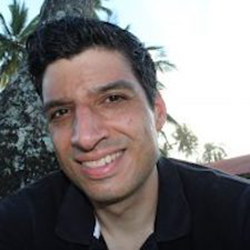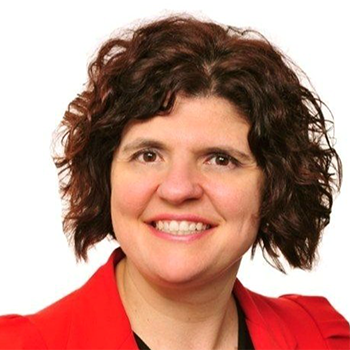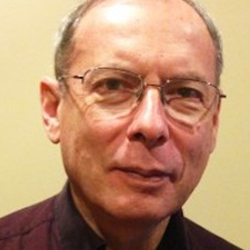Brenton Diaz

Seasonal Lecturer, School of Social Work
Social Work, Bachelor of Social Work (BSW)
Social Work, Master of Social Work
Brenton Diaz received both his BSW and MSW at York University, as well as receiving a BA in Social Development Studies at the University of Waterloo. While studying for his MSW, his Practice-Based Research Paper analyzed the services provided to Mexican Migrant Farm Workers in Canada and was awarded the Gerry Erickson Prize for Best Paper. He currently teaches several courses in the School of Social Work at York University, and has also taught at Lakehead University and Georgian College, as well as in several post-secondary institutions in Lithuania, Kenya and the Ukraine. He works as the Clinical Coordinator of the Adult Program at Cedar Centre, an agency based in York Region that works with people who have experienced interpersonal trauma as children (his position at Cedar Centre began as a BSW placement, arranged by York when his original placement fell through). Brenton has also consulted with local agencies and community leaders on violence and trauma in Malawi, Dominican Republic and Rwanda.
What brought you to teaching?
I’ve always had a desire to teach, but didn’t really have a clear direction about teaching until a colleague at the agency I work at called Cedar Centre, told me about a teaching opportunity in Georgian College that she was vacating. She suggested I teach a course based on our work together, and I took the opportunity, very intimidated and nervous as I was trying something new. I took the risk, and immensely enjoyed the experience, which emboldened me to apply to teach at the school I consider my home school, York University. The School of Social Work hired me to teach a course, which has led to a very rich career in teaching at York and around the world! A fun little story: on the first evening of my first-class teaching at York, I shared a syllabus with the class that featured dates that were entirely wrong. I was so embarrassed and wondered as I drove home in a snowstorm that night what in the world I was getting myself into! However, I persisted, the class ultimately was a wonderful experience (the students graciously took my little error on the syllabus in stride), and I continue to enjoy teaching at York today years later!
Why did you decide to teach in the social work program at York University?
I was greatly impacted by my time as a student at York University (I studied both my BSW & MSW degrees at York). The passionate professors that teach here inspired me to inquire deeply into the social issues we looked at in class. I also appreciate York’s unique Critical Social Work perspective, which provides a powerful perspective that helps me to discern the roots of the complex issues facing social work clients. York’s School of Social Work has given me so much in terms of tools of critical analysis and implementing that analysis in my career in social work. The idea of giving back and contributing to the School’s inquiry into Critical Social Work is very appealing to me. The thought that I might somehow inspire students, as I was inspired myself, is also something that is very exciting.
What is your experience teaching social work theoretical frameworks and supporting students to integrate them into practice?
This has been one of the most exciting things about teaching at York. I’ve had the opportunity to teach courses in topics such as Addictions, Eating Disorders, Racism and International Social Work, and for each, it’s been so intellectually stimulating and inspiring to apply Critical Social Work theories to these topics with students. Together with the students, we’ve been able to test out Critical Social Work theories with real examples from my daily social work practice, and we’ve come to see that the theories indeed shine all kinds of important light on the realities clients face. The theories come alive as we apply them to the lived realities of service-users, and together with the students we’ve been able to challenge the dominant norms that are used to oppress people. I feel that once students clearly see the link between theory and practice (or between theory and the causal effects of social issues), they are able to formulate new and exciting interventions to address these social problems.
What are some of your most rewarding teaching experiences at York?
There honestly are very many. Some that stand out include working with some students from Rwanda who are refugees: they ultimately opened up to me and shared with me about their experiences in the genocide. This sparked an interest in seeking into international trauma services, ultimately leading me to visit Rwanda to consult with the services that are working with people who are dealing with the trauma of the genocide. But, beyond that, the daily “A-ha” moments of students sharing their ideas in the classroom is always exciting. This happens every time I teach at York, and it’s impossible to name a favourite course or interaction, because they all become so rich once the students really become engaged and invested in sharing.
What have you learned from your students?
Our students give me such hope for the field. They are intelligent, passionate, resilient, and they really care about the social work field, and especially our clients. I have learned from them to keep that hope burning brightly, even in the midst of the massive social structures which can serve to marginalize our clients, as well as stifle the voice of our field. They also teach me so generously about the ways they experience the world through their diverse social identities. What a gift the students are to my motivation for being in the field, as well as my understanding of the impact of oppression on people!
What have been some challenges you encountered in teaching, as well as working in the field?
There have been times when students have disclosed to me about issues they are facing in their own lives: violence, mental health problems, problematic substance use, physical health issues, eating disorders, homelessness, past trauma, and more: students come into their studies in social work with a variety of their own problems that they are dealing with. While it’s often inspiring to witness these students dealing with their issues while studying, it can also be very difficult seeing them suffering with these issues which can impact their education.
What are some of your most rewarding teaching experiences at York?
There honestly are very many. Some that stand out include working with some students from Rwanda who are refugees: they ultimately opened up to me and shared with me about their experiences in the genocide. This sparked an interest in seeking into international trauma services, ultimately leading me to visit Rwanda to consult with the services that are working with people who are dealing with the trauma of the genocide. But, beyond that, the daily “A-ha” moments of students sharing their ideas in the classroom is always exciting. This happens every time I teach at York, and it’s impossible to name a favourite course or interaction, because they all become so rich once the students really become engaged and invested in sharing.
What have you learned from your students?
Our students give me such hope for the field. They are intelligent, passionate, resilient, and they really care about the social work field, and especially our clients. I have learned from them to keep that hope burning brightly, even in the midst of the massive social structures which can serve to marginalize our clients, as well as stifle the voice of our field. They also teach me so generously about the ways they experience the world through their diverse social identities. What a gift the students are to my motivation for being in the field, as well as my understanding of the impact of oppression on people!
What have been some challenges you encountered in teaching, as well as working in the field?
There have been times when students have disclosed to me about issues they are facing in their own lives: violence, mental health problems, problematic substance use, physical health issues, eating disorders, homelessness, past trauma, and more: students come into their studies in social work with a variety of their own problems that they are dealing with. While it’s often inspiring to witness these students dealing with their issues while studying, it can also be very difficult seeing them suffering with these issues which can impact their education.
Any last thoughts?
I am very honoured to teach at the School of Social Work, and I value the inclusiveness that the School offers to me, even as a Sessional Lecturer. They strive to include me in decisions, value my input, and offer me rich and suitable opportunities to contribute to the school. I don’t take any of it for granted and I am very appreciative to my colleagues in the school for their investment and support of me!
Browse more Alumni profiles
Graduate Program in Human Resource Management
Master of Human Resource Management (MHRM)
2015
Director of Human Resources, Victualic
Graduate Program in Public Policy, Administration & Law
Master of Public Policy, Administration and Law (MPPAL)
2019
Senior Analyst, Government of Canada




